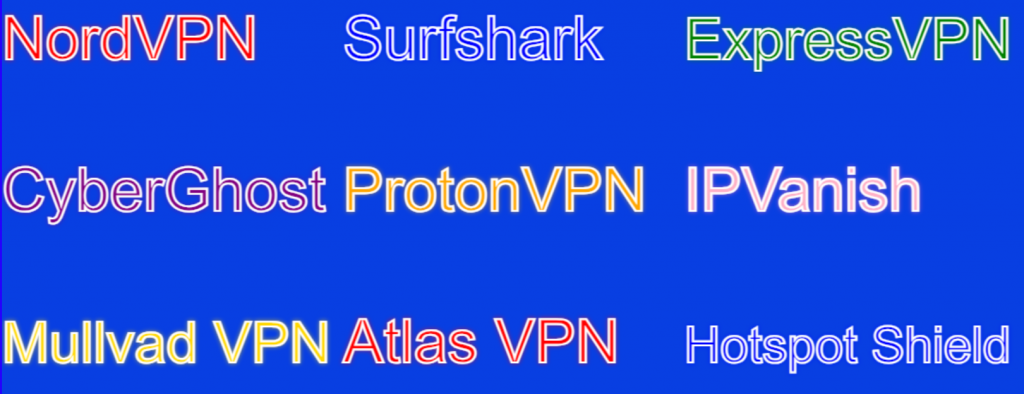
What is VPN?
A VPN (Virtual Private Network) service is a secure and encrypted network connection that allows users to browse the internet privately and anonymously. When you connect to a VPN server, your internet traffic is routed through an encrypted tunnel, ensuring that your online activities, such as browsing websites and exchanging data, remain confidential and protected from potential eavesdropping or surveillance. VPNs are commonly used for enhancing online privacy, accessing geo-restricted content, and securing data transmission, especially when using public Wi-Fi networks, as they shield your IP address and location, making it difficult for third parties to track your online behavior.
VPN services come in various forms, with many providers offering a range of server locations and features. Users can choose from a multitude of VPN options to suit their specific needs, whether it’s bypassing internet censorship, safeguarding personal information, or simply ensuring a higher level of online security and privacy.
What is the use of VPN Service?
A VPN, or virtual private network, is a service that encrypts your internet traffic and routes it through a secure server. This makes it much more difficult for third parties to track your online activity or intercept your data.
There are many reasons why people might choose to use a VPN service. Some of the most common uses include:
- Security: VPNs can help to protect your devices from malware and other online threats. They can also help to hide your IP address from websites and other services, making it more difficult for them to track you.
- Privacy: VPNs can help to protect your privacy by encrypting your traffic. This means that your ISP and other third parties will not be able to see what websites you are visiting or what data you are sending and receiving.
- Access to blocked content: VPNs can be used to access content that is blocked in your region. For example, if you are in a country where Netflix is blocked, you can use a VPN to connect to a server in a country where Netflix is available.
- Censorship circumvention: VPNs can be used to circumvent censorship in countries with restrictive internet policies. For example, if you are in China and you want to access Facebook, you can use a VPN to connect to a server outside of China.
- Gaming: VPNs can be used to improve gaming performance by reducing latency and ping.
- Business: VPNs can be used to securely connect employees to corporate networks when they are working remotely.
- File sharing: VPNs can be used to share files securely over the internet.
List of Major VPN Service Providers
- ExpressVPN: Known for its fast speeds, strong security, and user-friendly interface. It offers a large network of servers in numerous countries.
- NordVPN: Highly regarded for its robust security features, including a strict no-logs policy. NordVPN has a vast server network and offers strong privacy protection.
- CyberGhost: Popular for its user-friendly apps and extensive server network. It provides a variety of specialized servers for different purposes.
- Surfshark: Known for its affordability and unlimited device connections. Surfshark offers strong security and the ability to bypass geo-restrictions.
- Private Internet Access (PIA): A long-established provider known for its commitment to privacy and affordability. It has a large server network.
- VyprVPN: Known for its proprietary Chameleon protocol, which helps bypass internet censorship. VyprVPN emphasizes security and privacy.
- IPVanish: Offers a user-friendly interface and robust security features. It has a sizable server network and allows unlimited device connections.
- PureVPN: Known for its diverse server locations and strong security features. It offers a variety of add-on features for different use cases.
- TunnelBear: Recognized for its user-friendly and playful interface. It’s a good option for beginners looking for basic VPN protection.
- Windscribe: Offers both free and premium plans. Windscribe emphasizes privacy and security, with strong encryption and ad-blocking features.
- ProtonVPN: Developed by the creators of ProtonMail, known for its focus on privacy and strong encryption standards. It offers a free plan as well as paid options.
- Mullvad: A privacy-focused VPN provider with a strong commitment to not logging user data. It supports various platforms and offers WireGuard support.
How to Choose right VPN App?
Here are some factors to consider when choosing a VPN service provider:
- Security: Look for a VPN provider that uses strong encryption and has a good reputation for security.
- Privacy: Make sure the VPN provider has a strict no-logging policy. This means that they will not keep track of your online activity.
- Speed: Choose a VPN provider that has a large network of servers, so you can find a server that is close to you and offers good speeds.
- Features: Consider what features are important to you, such as the ability to access blocked content or bypass geo-restrictions.
- Pricing: Compare the pricing plans of different VPN providers to find the best deal.
I’m a DevOps/SRE/DevSecOps/Cloud Expert passionate about sharing knowledge and experiences. I am working at Cotocus. I blog tech insights at DevOps School, travel stories at Holiday Landmark, stock market tips at Stocks Mantra, health and fitness guidance at My Medic Plus, product reviews at I reviewed , and SEO strategies at Wizbrand.
Please find my social handles as below;
Rajesh Kumar Personal Website
Rajesh Kumar at YOUTUBE
Rajesh Kumar at INSTAGRAM
Rajesh Kumar at X
Rajesh Kumar at FACEBOOK
Rajesh Kumar at LINKEDIN
Rajesh Kumar at PINTEREST
Rajesh Kumar at QUORA
Rajesh Kumar at WIZBRAND

 Starting: 1st of Every Month
Starting: 1st of Every Month  +91 8409492687
+91 8409492687  Contact@DevOpsSchool.com
Contact@DevOpsSchool.com
